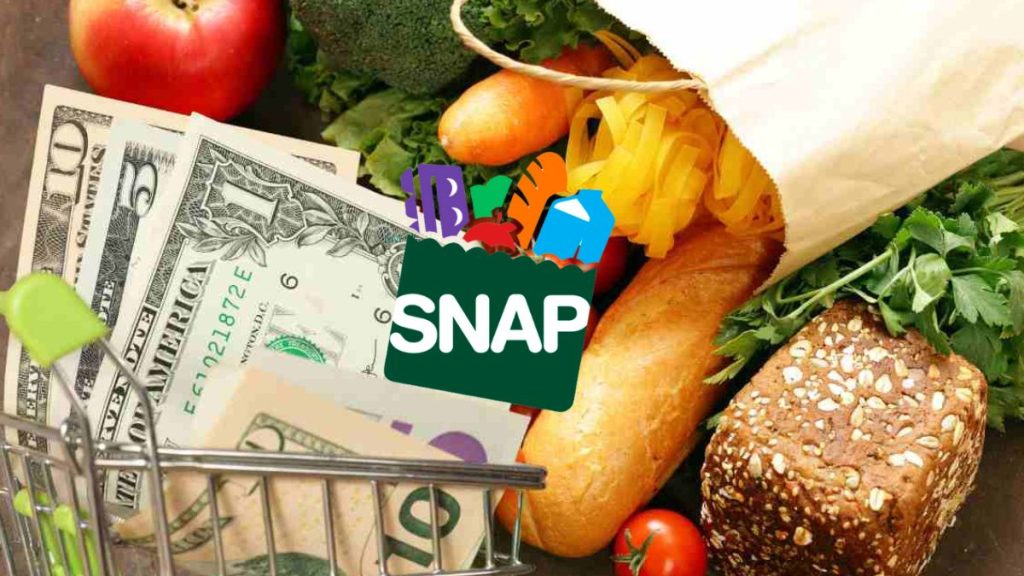The SNAP payments in January 2025 are just around the corner. If you are a Food Stamp recipients, check the new paydays for next month. Remember that the maximum payment amounts will remain the same in January. So, there will be no difference with the maximum amounts in December. This is because the COLA increase for 2025 took effect on October 1, 2024.
Therefore, all the maximum amounts for SNAP payments in January 2025 and through September 30, 2025, will remain the same. The largest payment for an individual will be up to $292 in the 48 contiguous States and the District of Columbia. Food Stamp payments are higher in Alaska, Hawaii, Guam, and the U.S. Virgin Islands due to higher inflation there.
SNAP payment in January 2025
USDA has confirmed all the Food Stamp payments in the United States. All 50 States will issue monthly payments in January 2025. Remember that States like Vermont, Rhode Island, Alaska, North Dakota and the U.S. Virgin Islands will issue all the payments on January 1. So, there are no payday arrangements since all recipients qualify for that payday.
Alabama: January 4-23
Alaska: January 1
Arizona: January 1-13
Arkansas: January 4-13
California: January 1-10
Colorado: January 1-10
Connecticut: January 1-3
Delaware: January 2-23
Florida: January 1-28
Georgia: January 5-23
Hawaii: January 3-5
Idaho: January 1-10
Illinois: January 1-10
Indiana: January 5-23
Iowa: January 1-10
Kansas: January 1-10
Kentucky: January 1-19
Louisiana: January 1-23
Maine: January 10-14
Maryland: January 4-23
Massachusetts: January 1-14
Michigan: January 3-21
Minnesota: January 4-13
Mississippi: January 4-21
Missouri: January 1-22
Montana: January 2-6
Nebraska: January 1-5
Nevada: January 1-10
New Hampshire: January 5
New Jersey: January 1-5
New Mexico: January 1-20
New York: January 1-9
North Carolina: January 3-21
North Dakota: January 1
Ohio: January 2-20
Oklahoma: January 1-10
Oregon: January 1-9
Pennsylvania: SNAP payments to arrive in the first 10 business days
Rhode Island: January 1
South Carolina: January 1-10
South Dakota: January 10
Tennessee: January 1-20
Texas: January 1-28
Utah: January 5, 11 and 15
Vermont: January 1
Virginia: January 1-7
Washington: January 1-20
West Virginia: January 1-9
Wisconsin: January 1-15
Wyoming: January 1-4
Guam: January 1-10
Puerto Rico: January 4 – 22
District of Columbia: January 1-10
U.S. Virgin Islands: January 1
SNAP payments in January 2025 may stop if:
Able-Bodied Adults Without Dependents do not meet the specific work requirements. Remember that there is a time limit if you are aged 18-54 and you do not qualify for an exemption.
This group age can only receive benefits for three months in a 3-year period unless they work or get eligible training for 80 hours per month, which is about 20 hours per week.
In order to avoid losing your SNAP payments in January or later, make sure you meet all the ABAWD rules. Exceeding the SNAP income and resources limit may also result in losing SNAP payments.
How does the ABAWD work requirement affect eligibility for SNAP benefits?
“ABAWD” stands for Able-Bodied Adults Without Dependents. This classification applies to certain adults aged 18 to 49 who do not have dependents and are considered physically and mentally able to work. Under the Supplemental Nutrition Assistance Program (SNAP), ABAWDs must generally meet specific work-related requirements to maintain continued eligibility for benefits for more than three months within a three-year period (often referred to as the “time limit”).
If you are subject to the ABAWD rules and do not meet the work requirement, you can typically only receive SNAP for three months in a 36-month period. After this time, you must comply with work-related activities or meet an exemption to regain or continue eligibility.
To maintain SNAP benefits beyond the three-month time limit, ABAWDs must generally:
- Work (paid or unpaid) at least 80 hours per month, or
- Participate in qualifying education or training activities for at least 80 hours per month, or
- Participate in a SNAP Employment and Training program as required by your state.
